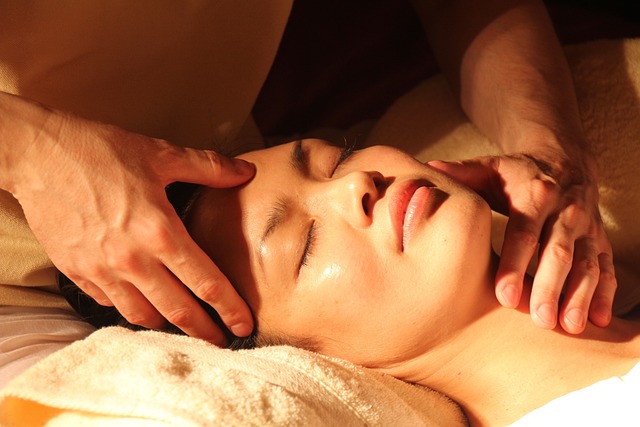In Georgia, understanding and adhering to consent laws is paramount for ethical and legal massage practice. Massage therapists must obtain clear, informed, and voluntary consent from clients, ensuring awareness of services. Georgia's legal framework, including specialized massage abuse lawyers and law firms, safeguards client rights against sexual assault or harassment. Open communication empowers clients to refuse inappropriate touch while maintaining professional boundaries, minimizing risk of legal issues. Education and standards by associations like GMTA protect clients and maintain the integrity of the profession. Victims of massage-related sexual assault can seek justice through these professionals in Georgia.
In Georgia, consent is a cornerstone of ethical and legal massage therapy practice. This comprehensive guide explores the vital role of informed consent in preventing massage abuse and sexual assault within the state’s thriving wellness industry. From understanding the legal framework to examining case studies, we delve into strategies for empowering clients, promoting education, and fostering a culture of respect. Find expert insights from massage abuse lawyers Georgia, attorneys, and law firms dedicated to safeguarding client rights.
Understanding Consent: A Foundation for Ethical Massage Practice in Georgia
Understanding consent is fundamental to ethical massage practice in Georgia and serves as a protective measure against potential massage abuse cases. Consent should be clear, informed, and voluntary—ensuring clients are fully aware of the services provided and give permission for each step. This process involves open communication between the therapist and client, allowing individuals to express boundaries, preferences, or any concerns they may have. A qualified massage therapist in Georgia must obtain explicit consent before proceeding with any treatment, especially considering the intimate nature of certain techniques.
Georgia’s legal framework pertaining to consent in massage therapy is designed to safeguard clients’ rights and prevent sexual assault or harassment within the profession. Massage abuse lawyers, attorneys, and law firms in Georgia play a vital role in educating both therapists and clients about these laws, ensuring compliance, and providing recourse when consent is violated. Awareness of one’s rights and responsibilities fosters an environment where clients feel empowered to refuse inappropriate touch, while therapists maintain professional boundaries, thereby minimizing the risk of massage-related legal issues, including sexual assault claims.
Legal Framework: Protecting Clients from Massage Abuse in the State of Georgia
In the state of Georgia, the legal framework protecting clients from massage abuse is a critical aspect of ensuring ethical practices within the massage therapy industry. The Georgia General Assembly has implemented laws that establish clear guidelines for consent and set strict consequences for violations. Massage therapists in Georgia are required to obtain explicit, informed consent from their clients before providing any therapeutic services. This means that clients must be fully aware of the nature of the treatment, its benefits, and potential risks or discomforts.
Any form of massage abuse, including sexual assault, is taken seriously under Georgia law. Victims of massage abuse can seek legal redress through a reputable massage abuse lawyer in Georgia, or consult with a qualified massage abuse attorney from a specialized law firm. These professionals are well-versed in navigating the complexities of such cases and can provide guidance and representation to help ensure justice for victims. Massage abuse law firms in Georgia offer specialized services, offering support and advocating for the rights of those who have experienced harm during a massage session.
Defining and Addressing Sexual Assault in Massage Settings: Case Studies and Legal Precedents
Defining and addressing sexual assault in massage settings is paramount to maintaining a safe environment for clients and practitioners alike. In Georgia, as in many jurisdictions, sexual assault occurs when a person engages in sexual contact with another without that individual’s consent. This can manifest in various ways during a massage, including inappropriate touching, unwanted advances, or exploitation of a client’s vulnerability. Case studies have highlighted incidents where masseuses have faced allegations of sexual abuse, leading to legal repercussions and even loss of licensing.
Legal precedents play a crucial role in deterring such misconduct. Georgia’s laws on consent are clear, emphasizing the necessity of explicit agreement from the recipient. Massage therapists must be well-versed in these regulations to ensure their practices align with ethical standards. Any deviation from informed consent can result in civil lawsuits and criminal charges, as seen in several high-profile cases involving massage abuse lawyer Georgia and massage sexual assault lawyers Georgia. Clients who have suffered such abuses are encouraged to seek help from reputable massage abuse attorneys Georgia or massage abuse law firms Georgia for legal redress and support.
The Role of Massage Therapy Associations and Licensing Boards in Promoting Consent Practices
Massage therapy associations and licensing boards play a pivotal role in promoting consent practices within the industry. These organizations are responsible for setting standards, regulations, and ethical guidelines that massage therapists must adhere to. By establishing clear policies on consent, they ensure client safety and foster an environment where every individual has control over their body during a massage session.
In Georgia, for instance, massage therapy associations like the Georgia Massage Therapy Association (GMTA) actively promote informed consent by providing educational resources and training programs. They encourage therapists to communicate openly with clients about their services, potential risks, and boundaries. Moreover, licensing boards conduct regular inspections and investigations to ensure therapists comply with consent laws and ethical standards, acting as a deterrent against any form of massage abuse or sexual assault. This collaborative effort between associations and boards helps protect clients and maintains the integrity of the massage therapy profession in Georgia, making it easier for victims of massage abuse to find justice through lawyers specializing in these cases, such as those at reputable law firms like [Law Firm Name], who can offer guidance and representation to those affected by massage-related sexual assault.
Client Rights, Education, and Prevention Strategies: Empowering Georgians Against Massage Abuse
In Georgia, clients seeking massage therapy services have certain rights that are protected by both state laws and ethical standards. Understanding these rights is crucial to empowering Georgians against potential massage abuse. Clients have the right to give informed consent for any therapeutic intervention, including massages. This means they should be fully aware of the treatments, their benefits, risks, and alternative options. Massage therapists in Georgia are legally required to obtain explicit consent from clients before initiating any service.
Education plays a pivotal role in prevention. Both massage therapists and clients must stay informed about the legal implications of massage abuse and sexual assault within the profession. Recognizing red flags and understanding one’s rights is essential. A proactive approach by massage therapy professionals through workshops, seminars, and regular training sessions can raise awareness about consent, personal boundaries, and appropriate professional conduct. This continuous education fosters a culture where massage abuse is not tolerated, ensuring a safe and therapeutic environment for all clients in Georgia. For those who have experienced massage abuse, connecting with reputable massage abuse lawyers or attorneys in Georgia can provide justice and support through legal avenues.





